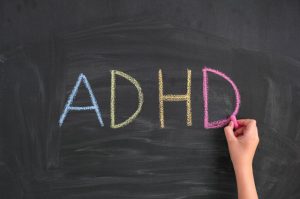Resources
ParentsParents must become informed on the many ramifications of dyslexia and attention deficit disorders in order to insure their child obtains proper intervention and support in the academic world. Historically, less than 5% of dyslexics are properly identified in the systems, and, when identified, the intervention given in the public education system may not be appropriate or effective. The only other group of disabilities that the public education sector has a higher documented failure rate with are the severely emotionally disturbed. Yet, when proper remedial techniques are applied, the dyslexic/ADD does not have to have learning disabilities and can be highly successful. Parents must be aware of their role in developing proper behavioral skills, good self-concepts, good social attitudes, good interpersonal relations, work ethics, etc. Dyslexic/ADD children do not just require different teaching techniques to learn academics, but also “learn differently” at home. “Tried and true” parenting techniques may not work for the dyslexic/ADD child. Parents need to learn how dyslexia/ADD is affecting their child, and learn effective techniques to teach their child how to become an independent, responsible person. Parents also must be aware of the dyslexic/ADD’s more fragile biochemistry and the impact of allergies and diets on their abilities and moods. Workshops are available through Hardman and Associates.
<top> |
|||
Research and DevelopmentDyslexia Research Institute has researched the learning styles, effective parenting behavioral techniques, links with allergies and biochemistry, link with alcoholism, and more effective teaching techniques to use with dyslexic/ADD children and adults.
In addition to publications which can be obtained, DRI, through Hardman and Associates, presents workshops on each area affecting this population.
<top> |
|||
Diets and AllergiesPresent research is beginning to confirm the biochemical differences in the dyslexic/ADD child and adult. An understanding of these differences is necessary for developing a holistic program which addresses them not only from an academic but from a physiological standpoint. Relieving some of the physical and biochemical stress can be beneficial to the learning and behavioral situation. Workshops available include:
Because the dyslexic/ADD has inherited a more fragile neurochemistry, diets and allergies play a role in many of the perceptual, processing, and behavioral manifestations they have. This is often seen in their variability in performance — being able to do something one time and not another — and is one of the reasons they are often told they are “able to do it if they want to,” which is not really true. Understanding how to control the dramatic biochemical shifts through natural means is extremely important for more level functioning and to prevent other physiological, emotional, and medical problems in the future. Workshops are available through Hardman and Associates.
<top> |
|||
Behavior and Social DevelopmentUnfortunately, the Unfortunately, the behavioral and social aspects of perception and language problems are often not considered until they become so pronounced they are extremely difficult to address. Yet, these areas cause more difficulty for the dyslexic/ADD individual in the adult world or on the work force than the academic or learning side of their problems. There is a high correlation between juvenile delinquency, incarceration, welfare, and dyslexia/ADD. As high as sixty to seventy percent of incarcerated individuals are dyslexic/ADD. This is not just a result of their academic problems, even though school failure certainly makes life more difficult. Recognizing how language and perception impact development of self-concept, morals, ethics, and social attitudes is extremely important for parents and educators. Again, when addressed properly through good parenting and appropriate discipline and teaching techniques, the dyslexic/ADD does not have to become one of the negative statistics but can become highly successful and productive. Workshops are available through Hardman and Associates. |






